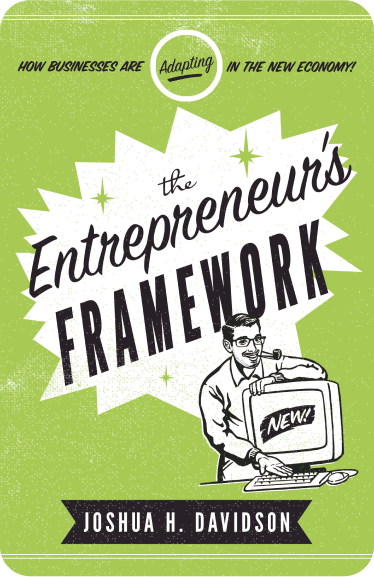You might have noticed it’s not exactly all “sparkles and unicorns” out there for most startups or even existing companies right now. However, zebra startups are pushing forward!
Calls for answers to meet our new needs abound, even as VC wells in many circles run dry.
You may have even noticed that the largest companies are laying off staff and facing challenges.
So, as a newbie in the space, what exactly can you do?
Be a Zebra
Right now, it’s the dynamic, entrepreneurial-focused companies with a no-frills, bottom-up approach who are finding the most success when it comes to business continuity.
The Zebras Unite Twitter account describes these ‘zebra’ businesses as:
“an entrepreneurial, bottom-up, regenerative, equitable, dynamic, sustainable, interconnected, accessible economy that creates shared prosperity.”
Aka, a 🦓 zebra.”
This might sound like something new, but it’s not.
Of course, the reality is that even pre-Covid, zebras were on the rise.
They’ve been here all along.
You Already Know Some ‘Zebras’
For decades, they’ve been the small businesses serving your local community and many other bootstrapped entrepreneurial endeavors with a mission-led focus — tech or not.
The term “Zebra”, coined more recently by a woman and BIPOC founder-led movement Zebras Unite, is in direct response to tech disruption “hustle culture”, which often evokes the use of unicorn imagery and lacks inclusion overall.
In a sea of felled unicorns, achieving profitability and real-world viability while doing real good has taken on a whole new level of urgency for startups — and that’s not necessarily a bad thing.
As organizations adjust to our new reality and learn to meet rising demand via all-new mediums, this can be an opportunity to fundamentally shift the way we all conduct business for the greater good.
Trading in the Horn for Stripes
Why zebra startup, you might be asking.
For one thing, zebras are real!
Besides being highly mutualistic in the wild (they travel in packs), the zebra’s stripes represent the dual nature of companies who operate as zebras, promoting both social good and achieving sustainable profitability. Built from the ground up to help solve a societal problem, these companies work together serving a double bottom-line and look to leave a positive net impact with their product or services — albeit at a slower pace and potentially, on a smaller scale.
But zebras still sparkle, and in fact a herd of zebras is called a dazzle! I just learned that writing this piece, but the core idea behind the zebra is not a new one to the team here at Chop Dawg.
It is a methodology we preach from day one to startups we partner with, and that is finding a sustainable path to profitability and app monetization from day one.
Having a secure pathway to real-world viability is what sets zebras apart in the startup world.
If needed, they can take on bank loans based on the strength of their company’s foundation (typically, built from their literal sweat and tears) and avoid dilution by raising equity money.
This tends to lead to better sustainability in the long-run. And this makes a lot of sense.
How Does a Zebra Startup Get Its Start?

Historically, most zebra companies are led by underrepresented founders, who face many obstacles when it comes to gaining access to resources needed to scale their company.
Only 3% of venture funding goes to women-led companies, and less than 1% to people of color. And while 30% of all businesses are founded by women, they receive just 5% of small business loans.
Forced to rely on pure stamina and business acumen alone to build their companies, this often leads to a stronger foundation that’s built to last. The data supports this too, as a survey found that women-led companies often outperform their male-led counterparts in VC portfolios.
In essence, zebras are real companies, solving real problems, making real money, because often, they had no other choice but to achieve real-world viability.
More startups need to focus on building sustainability from the ground up — not just raising money, or getting to a successful exit. Most founders never sell their company, or raise money at all!
And yet, this is what the narrative remains fixated on when it comes to entrepreneurial success in the tech space.
Following the Pandemic, The Narrative Is Shifting
For too long now, we’ve been breathless about startups who’ve raised x for y, insert blank dollar valuations, and tech disruptors with golden parachutes.
It’s gotten to where some seem to feel raising money is a startup right of passage. And everyone is a VC.
But startup culture is so much more than just fancy office spaces and ping pong tables in the break room. And even venture capital.
The impetus of Covid 19 seemed to almost level the playing field in that respect, leaving many businesses shed bare; without the frills and perks, only their business model to rely on.
That’s where the zebra startup shines.
But, maybe that’s how it should be in the first place.
Building Equitable and Sustainable Entrepreneurship from the Ground Up
It’s no accident that we preach this methodology to the startups and companies we partner with.
We practice it ourselves.
Over a decade ago, our founder went door-to-door to the small businesses in his hometown with an offer to help get them online.
It was the middle of the recession, and many had yet to tap into the wonders of the internet, lacking the online presence to reach a wider customer base.
He may not have had a driver’s license yet, but he did have a company name and a mission: to help these non-technical businesses adapt and thrive in the New Economy.
And with that, Chop Dawg was born.
Today, we’ve come a long way from the “bedroom enterprise” we started off as, but our mission is the same.
Though the medium has shifted from websites to apps and software, we still partner with non-technical entrepreneurs and growing companies to bring their unique technological vision to life.
We work with small businesses and entrepreneurs who are often priced out of quality onshore app development, or worse, left behind due to lack of tech-savvy.
Our Approach to How Work Is Done
We’ve always been remote-first because we value flexibility for our team and partners. We’ve enjoyed its many benefits too — cost savings being one of them.
We strive to be more than just an app development agency, but a true partner to the startups and companies that we work with every day. Our process is extremely collaborative, and that also means it’s not for everyone.
That’s not something you’d hear every app developer say, but it’s where our mission-led focus comes in.
We’re not looking to build the next uber for x, but we are looking to help every day entrepreneurs and growing companies successfully position themselves to build sustainable revenue streams using digital technology.
It is both our responsibility and honor as we help mold the next generation of startup ideas and digital technology.
The Zebra Startup Will Lead The Way Forward

While unicorns seem bent on “disruption” in their industry, zebra culture encourages connection and cultivating shared prosperity from within, starting with the business model itself and ending with the mission. In a post-covid world, now more than ever, this is what our community needs.
Zebra startup ventures and companies focus on repairing, not disrupting.
When shareholder profit and hyper-scaling is a non-issue, the focus stays on the mission, and continuous improvement.
Zebra companies seek sustainable, methodical growth while solving real problems — focusing on the business model from day one.
Be sure to check out Zebras Unite if this latest addition to the tech zoo intrigues you.
Moving forward, the more rare unicorn will still shine, but they’ll dull in comparison to a dazzle of zebras, working together and sharing resources to cooperatively create value from the ground up.
Know any zebras? Shout them out in the comments!
What do you think? Comment below.
Since 2009, we have helped create 350+ next-generation apps for startups, Fortune 500s, growing businesses, and non-profits from around the globe. Think Partner, Not Agency.
Find us on social at #MakeItApp’n®
















